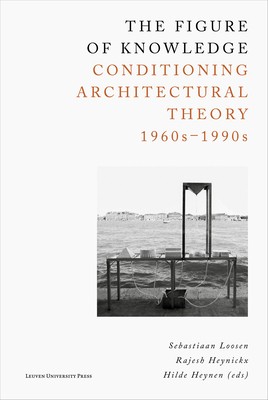
- Išsiųsime per 10–14 d.d.
- Leidėjas: Leuven University Press
- ISBN-10: 9462702241
- ISBN-13: 9789462702240
- Formatas: 15.6 x 23.4 x 1.7 cm, minkšti viršeliai
- Kalba: Anglų
- Extra -15 % nuolaida šiai knygai su kodu: ENG15
The Figure of Knowledge + nemokamas atvežimas! | knygos.lt
Atsiliepimai
Aprašymas
It is a major challenge to write the history of post-WWII architectural theory without boiling it down to a few defining paradigms. An impressive anthologising effort during the 1990s charted architectural theory mostly via the various theoretical frameworks employed, such as critical theory, critical regionalism, deconstructivism, and pragmatism.
Yet the intellectual contours of what constitutes architectural theory have been constantly in flux. It is therefore paramount to ask what kind of knowledge has become important in the recent history of architectural theory and how the resulting figure of knowledge sets the conditions for the actual arguments made.
The contributions in this volume focus on institutional, geographical, rhetorical, and other conditioning factors. They thus screen the unspoken rules of engagement that postwar architectural theory ascribed to.
Contributors: Matthew Allen (University of Toronto), Karen Burns (University of Melbourne), Ole W. Fischer (University of Utah), Philip Goad (University of Melbourne), Hilde Heynen (KU Leuven), Rajesh Heynickx (KU Leuven), Paul Holmquist (Louisiana State University), Sandra Kaji-O'Grady (University of Queensland), Peter Lang (Royal Institute of Art, Stockholm), André Loeckx (KU Leuven), Sebastiaan Loosen (KU Leuven), Louis Martin (Université du Québec à Montréal), Joan Ockman (University of Pennsylvania), Carmen Popescu (ENSAB, Rennes), Ricardo Ruivo (Architectural Association, London), Andrew Toland (University of Technology Sydney).
Free ebook available at OAPEN Library, JSTOR and ProjectMuse
EXTRA 15 % nuolaida su kodu: ENG15
Akcija baigiasi už 2d.00:28:31
Nuolaidos kodas galioja perkant nuo 10 €. Nuolaidos nesumuojamos.

- Leidėjas: Leuven University Press
- ISBN-10: 9462702241
- ISBN-13: 9789462702240
- Formatas: 15.6 x 23.4 x 1.7 cm, minkšti viršeliai
- Kalba: Anglų
It is a major challenge to write the history of post-WWII architectural theory without boiling it down to a few defining paradigms. An impressive anthologising effort during the 1990s charted architectural theory mostly via the various theoretical frameworks employed, such as critical theory, critical regionalism, deconstructivism, and pragmatism.
Yet the intellectual contours of what constitutes architectural theory have been constantly in flux. It is therefore paramount to ask what kind of knowledge has become important in the recent history of architectural theory and how the resulting figure of knowledge sets the conditions for the actual arguments made.
The contributions in this volume focus on institutional, geographical, rhetorical, and other conditioning factors. They thus screen the unspoken rules of engagement that postwar architectural theory ascribed to.
Contributors: Matthew Allen (University of Toronto), Karen Burns (University of Melbourne), Ole W. Fischer (University of Utah), Philip Goad (University of Melbourne), Hilde Heynen (KU Leuven), Rajesh Heynickx (KU Leuven), Paul Holmquist (Louisiana State University), Sandra Kaji-O'Grady (University of Queensland), Peter Lang (Royal Institute of Art, Stockholm), André Loeckx (KU Leuven), Sebastiaan Loosen (KU Leuven), Louis Martin (Université du Québec à Montréal), Joan Ockman (University of Pennsylvania), Carmen Popescu (ENSAB, Rennes), Ricardo Ruivo (Architectural Association, London), Andrew Toland (University of Technology Sydney).
Free ebook available at OAPEN Library, JSTOR and ProjectMuse




Atsiliepimai